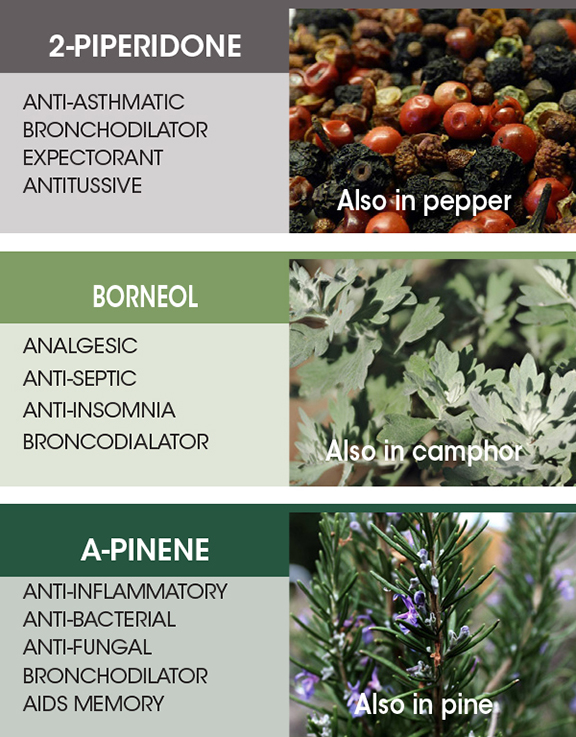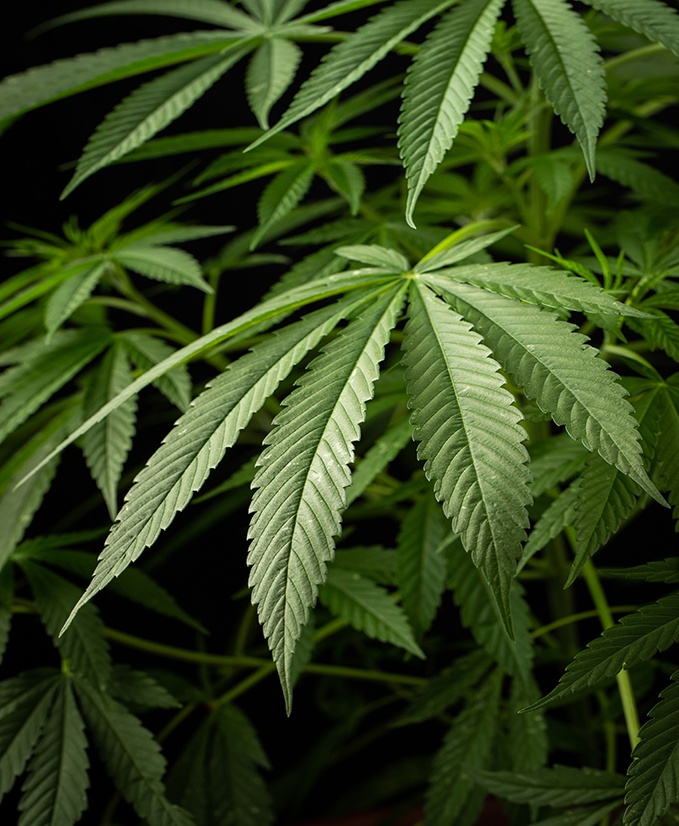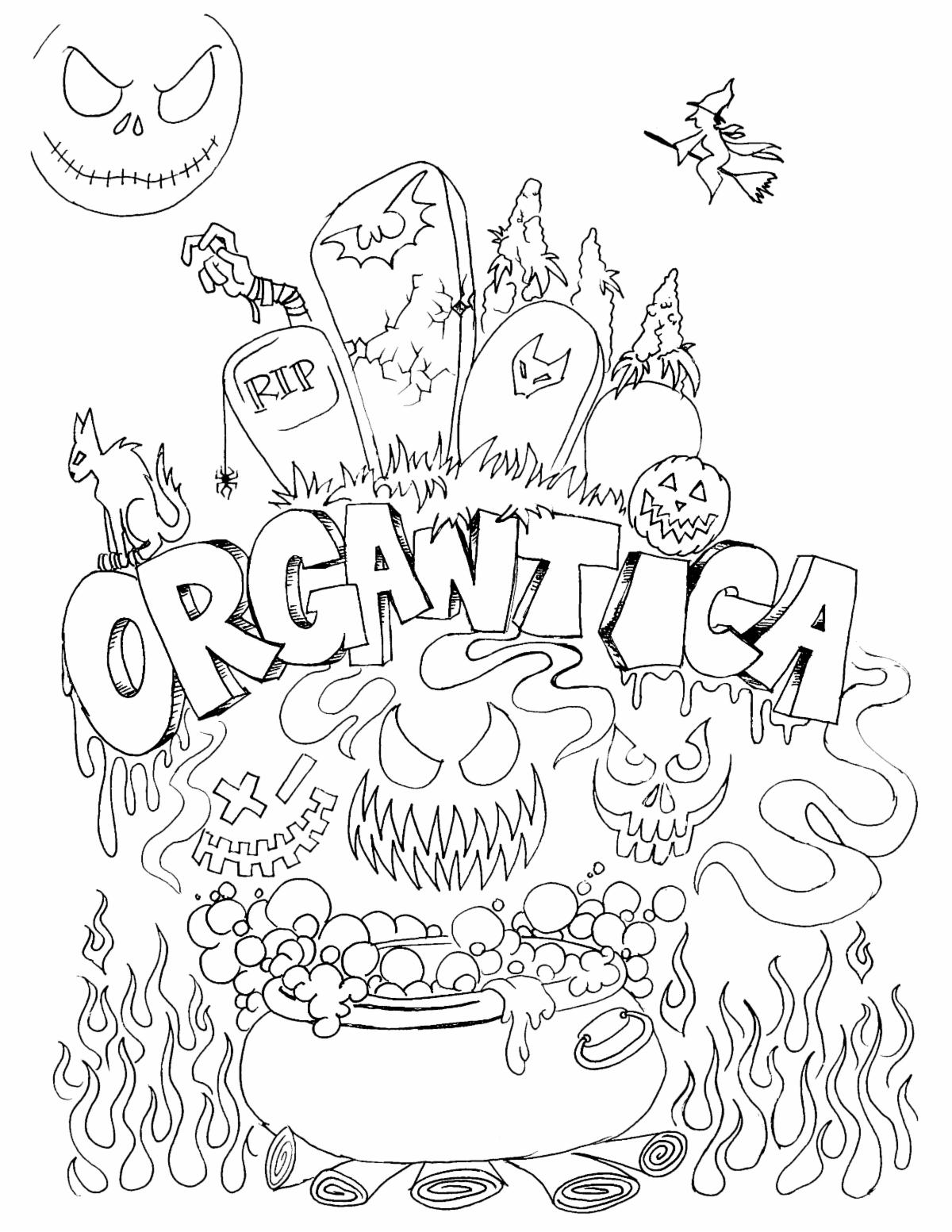Allergy season is upon us, and it’s important to know that cannabis can help alleviate symptoms associated with allergies as well as other respiratory issues. Not all cannabis varieties can be of help for respiratory problems, but there are things to look for when shopping for your cannabis medicine that will help you pick the right strain, and those things are specific terpenes.
 Terpenes to the Rescue for Allergies
Terpenes to the Rescue for Allergies
Although it seems that smoking anything at all would be detrimental and counterproductive to helping clear your lungs or sinuses, that isn’t necessarily the case. Many of the terpenes present in a wide variety of cannabis strains can actually help. Native and Folk healers have been using plants high in terpenes for hundreds, if not thousands of years, to treat a large variety of ailments, including respiratory illnesses. Also, the pharmaceutical industry is very aware of the benefit of these terpenes and uses them as ingredients in many over-the counter products sold to remediate symptoms of respiratory issues. Cough remedies and rubs like Vicks VapoRub contain terpenes. So this news should be of no surprise to anyone, except for the fact that terpenes are a rather new concept in the cannabis world.
Respiratory infections and allergies will cause swelling of the sinus passages and bronchial tract and will also promote excessive mucus production, making it hard to breath and hard to expel the build up of mucus. Most people will run to the drug store for an over-the-counter remedy to help with these symptoms, but there are more natural medicines can be used just as effectively. Some of the most common terpenes found in cannabis, (in major and minor amounts), are very helpful for respiratory ailments because they are bronchodilators, expectorants and anti-inflammatory. Some very special strains may have a few of these terpenes, and some only a one or two. If you find a strain that has several of the terpenes below, you are very lucky to have found great medicine!
Expectorants work to loosen or thin mucus in the lungs and nasal passages, making it easier to expel. Bronchodilators relax the muscles in our lungs helping the bronchial passages to expand and clear. Anti-inflammatories aid and enhance broncodilators and expectorants to better do their job.
Expectorant Terpenes:
- α Pinene (major terpene) – pine aroma
- Camphene (major terpene) – camphor aroma, like sage
- Carvacrol (minor terpene) – oregano and thyme aroma
- Euginol (minor terpene) – earthy, spicy aroma, like cloves
- Terpinene (minor terpene) – eucalyptus aroma
- Terpinolene (minor terpene) – turpentine aroma
Bronchodilator Terpenes:
- α Pinene (major terpene) – pine aroma
- β Pinene (major terpene) – pine aroma, like rosemary
- Borneol (major terpene) – camphor aroma
- Cineol (minor terpene) – earthy, green menthol-like aroma, like tea tree
- Limonene (major terpene – citrus aroma of lemons, limes, oranges
- Linalool (major terpene) – floral and herby, like lavender
- α Terpinene (minor terpene) – eucalyptus aroma
Anti-Inflammatory Terpenes:
- α Pinenemajor terpene) – pine aroma
- β Pinene (major terpene) – pine aroma, like rosemary
- β Caryophylene (major terpene) – earthy, spicy aroma, like cloves
- Camphene (major terpene) – especially good for lung inflammation
- Citronellol (minor terpene) – floral aroma, like roses
- Geriniol (major terpene) – floral aroma, like roses and geraniums
- Humulene (major terpene) – green and earthy aroma, like hops and basil
- Isopulegol (minor terpene) – green, woody, minty aroma
- β Caryophylene (major terpene) earthy, spicy aroma, like black pepper
- Myrcene (major terpene) – fruity aroma, like grapes and mangos
A big plus to many of these terpenes is they, (depending on which one it is), are also either anti-septic, anti-bacterial and/or anti-fungal, and some have more than one of these effects. This can help your respiratory issues to NOT turn into an infection in your sinuses or lungs. All of these terpenes are best delivered in a low heat vapor to have the maximum effect on your respiratory system.
(Major terpenes mean they are more common and found in larger quantities in cannabis strains. Minor means they are a little less common and found in smaller (yet still effective), quantities. With terpenes, more doesn’t necessarily mean better.)




